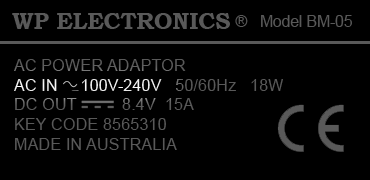Which plug adaptor do I need when travelling from Lebanon to Nicaragua?
Summary
The table below summarises the plug types, voltage and frequency of electrical current in both Lebanon and Nicaragua.
| Lebanon | Nicaragua | |
|---|---|---|
| Plug Types | A, B, C, D, G | A |
| Voltage | 110V, 200V | 120V |
| Frequency of electrical current | 50Hz | 60Hz |
Plug Adaptors
In Lebanon there's more than one plug type in use.
What type of plug does your appliance have?
Your Appliance has Plug Type A
No adaptor needed
Nicaragua uses Socket Type A, which is the same as the plug type of your appliances from Lebanon. You will not need an adaptor.
Your Appliance has Plug Type B
You will need this adaptor:
Socket Type
(Lebanon) to Plug Type A
(Nicaragua)
Your Appliance has Plug Type C
You will need this adaptor:
Socket Type
(Lebanon) to Plug Type A
(Nicaragua)
Your Appliance has Plug Type D
You will need this adaptor:
Socket Type
(Lebanon) to Plug Type A
(Nicaragua)
Your Appliance has Plug Type G
You will need this adaptor:
Socket Type
(Lebanon) to Plug Type A
(Nicaragua)
Warnings
Voltage
The voltage, 200V, which is present in Lebanon, is significantly different to what's used in Nicaragua.
Some appliances are compatible with multiple voltages. To find out if your appliance is one of them, check the appliance label and/or instruction booklet. An example appliance label is below.

See examples of appliance labels
Is your appliance compatible with the voltage used in Nicaragua (120V)?
If your appliance is not compatible with multiple voltages, you will need a transformer to adjust the voltage input when using your appliance in Nicaragua.
Considerations
Voltage
The voltage, 110V, which is also present in Lebanon, is not exactly the same to what's used in Nicaragua, but the difference is tolerable, so you should not need a transformer when using sockets with this voltage. Be sure to carefully check the voltage before using your appliance in sockets in Nicaragua. You may need to ask a local resident, an electrician, or the local government to find out in situations when the power sockets are not labelled with their voltages.
Frequency of Electrical Current
The frequency of electrical current found in Lebanon (50Hz) differs to that found in Nicaragua (60Hz).
Most equipment is not affected by differences in frequencies. Some exceptions are:
- Electric clocks: Some electric clocks use the frequency of electrical current to measure time. If the clock is designed for one frequency, but used with another, time shifts could be experienced.
- Appliances using motors: If there is a motor load associated with an appliance, the frequency governs the speed in revolutions of the motor. This could mean that the motor will spin faster, or slower than intended and could have a detrimental effect in the appliance's operation. This is of particular concern in power tools and other machinery that uses motors, so if you must use these, you should seek access to a frequency converter.

